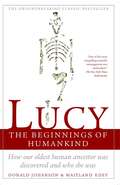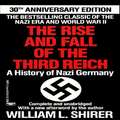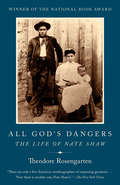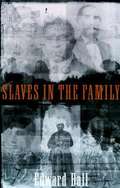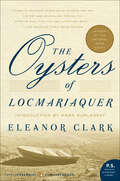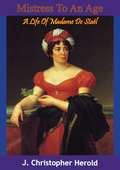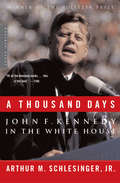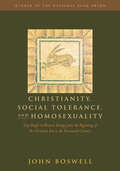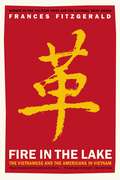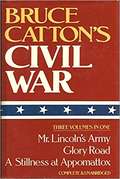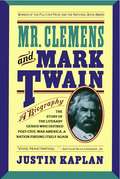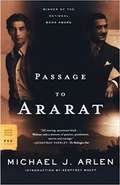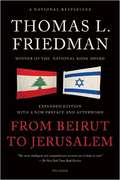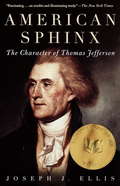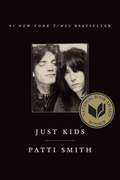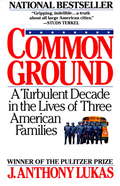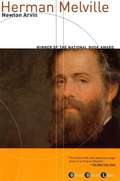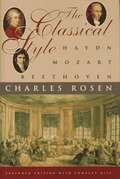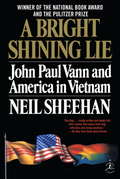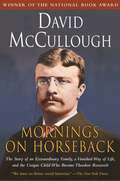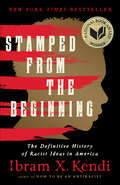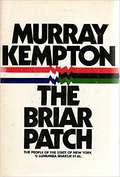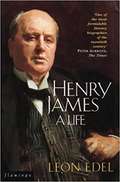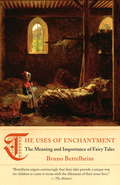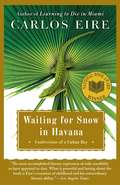Special Collections
National Book Award Winners - Non-Fiction
- Table View
- List View
Lucy
by Maitland A. Edey and Donald C. JohansenThe dramatic discovery of our oldest human ancestor and the controversial change it makes in our view of human origins
Winner of the National Book Award
The Rise and Fall of the Third Reich
by William L. ShirerBefore the Nazies could destroy the files, famed foreign correspondent and historian William L. Shirer sifted through the massive self-documentation of the Third Reich, to create a monumental study that has been widely acclaimed as the definitive record of one of the most frightening chapters in the history of mankind--now in a special 30th anniversary edition.
Winner of the National Book Award
All God's Dangers
by Theodore RosengartenClassic of oral history tells the life story of Nate Shaw, an illiterate black sharecropper who stood up against white farmers in the 1930's and spent time in prison for it. Includes much folklore and information about rural life.
Winner of the National Book Award
Slaves in the Family
by Edward BallThe Ball family hails from South Carolina―Charleston and thereabouts. Their plantations were among the oldest and longest-standing plantations in the South. Between 1698 and 1865, close to four thousand black people were born into slavery under the Balls or were bought by them. In Slaves in the Family, Edward Ball recounts his efforts to track down and meet the descendants of his family's slaves. Part historical narrative, part oral history, part personal story of investigation and catharsis, Slaves in the Family is, in the words of Pat Conroy, "a work of breathtaking generosity and courage, a magnificent study of the complexity and strangeness and beauty of the word ‘family.'"
Winner of the National Book Award
The Oysters of Locmariaquer
by Eleanor ClarkWinner of the National Book Award“What an elegant book this is, starting with that most elegant of creatures, the Belon oyster. . . . [Clark’s] fantastic blending of science and art, history and journalism, brings the appetite back for life and literature both.” — Los Angeles Times Book ReviewOn the northwest coast of France, just around the corner from the English Channel, is the little town of Locmariaquer (pronounced "loc-maria-care"). The inhabitants of this town have a special relationship to the world, for it is their efforts that maintain the supply of the famous Belon oysters, called les plates ("the flat ones"). A vivid account of the cultivation of Belon oysters and an excursion into the myths, legends, and rich, vibrant history of Brittany and its extraordinary people, The Oysters of Locmariaquer is also an unforgettable journey to the heart of a fascinating culture and the enthralling, accumulating drama of a unique devotion.
Mistress To An Age
by J. Christopher HeroldJ. Christopher Herold vigorously tells the story of the fierce Madame de Stael, revealing her courageous opposition to Napoleon, her whirlwind affairs with the great intellectuals of her day, and her idealistic rebellion against all that was cynical, tyrannical, and passionless. Germaine de Stael's father was Jacques Necker, the finance minister to Louis XVI, and her mother ran an influential literary-political salon in Paris. Always precocious, at nineteen Germaine married the Swedish ambassador to France, Eric Magnus Baron de Stael-Holstein, and in 1785 took over her mother's salon with great success. Germaine and de Stael lived most of their married life apart. She had many brilliant lovers. Talleyrand was the first, Narbonne, the minister of war, another; Benjamin Constant was her most significant and long-lasting one. She published several political and literary essays, including "A Treatise on the Influence of the Passions upon the Happiness of Individuals and of Nations, " which became oneof the most important documents of European Romanticism. Her bold philosophical ideas, particularly those in "On Literature, " caused feverish commotion in France and were quickly noticed by Napoleon, who saw her salon as a rallying point for the opposition. He eventually exiled her from France.
Winner of the 1959 National Book Award
A Thousand Days
by Arthur M. Schlesinger Jr.Pulitzer Prize and National Book Award winner: &“Of all the Kennedy books . . . this is the best.&” —Time Arthur M. Schlesinger Jr. served as special assistant to President John F. Kennedy throughout his presidency—from the long and grueling campaign to Kennedy&’s tragic and unexpected assassination by Lee Harvey Oswald. In A Thousand Days, Schlesinger combines intimate knowledge as one of President Kennedy&’s inner circle with sweeping research and historic context to provide a look at one of the most legendary presidential administrations in American history. From JFK&’s battle with Nixon during the 1960 election, to the seemingly charmed inaugural days, to international conflict and domestic unrest, Schlesinger takes a close and fond, but unsparing, look at Kennedy&’s tenure in the White House, covering well-known successes, like his involvement in the Civil Rights movement; infamous humiliations, like the Bay of Pigs; and often overlooked struggles, like the Skybolt missile mix-up, alike. Praised by the New York Times as &“at once a masterly literary achievement and a work of major historical significance,&” A Thousand Days is not only a fascinating look at an American president, but a towering achievement in historical documentation.
Christianity, Social Tolerance, and Homosexuality
by John BoswellJohn Boswell's study of the history of attitudes toward homosexuality in the early Christian West was a groundbreaking work that challenged preconceptions about the Church's past relationship to its gay members--among them priests, bishops, and even saints--when it was first published twenty-five years ago. The historical breadth of Boswell's research (from the Greeks to Aquinas) and the variety of sources consulted make this one of the most extensive treatments of any single aspect of Western social history. Christianity, Social Tolerance, and Homosexuality, still fiercely relevant today, helped form the disciplines of gay and gender studies, and it continues to illuminate the origins and operations of intolerance as a social force.
Winner of the National Book Award
Fire in the Lake
by Frances FitzgeraldThis landmark work, based on Frances FitzGerald's own research and travels, takes us inside Vietnam into the traditional, ancestor-worshiping villages and the corrupt crowded cities, into the conflicts between Communists and anti-Communists, Catholics and Buddhists, generals and monks and reveals the country as seen through Vietnamese eyes.
With a clarity and authority unrivaled by any book before it or since, Fire in the Lake shows how America utterly and tragically misinterpreted the realities of Vietnam.
Winner of the Pulitzer Prize
Winner of the National Book Award
Bruce Catton's Civil War
by Bruce CattonInfinitely readable and absorbing, Bruce Catton's "The Civil War" is one of the best-selling, most widely read general histories of the war, now available in a single ominbus volume. The Civil War vividly traces one of the most moving chapters in American history, from the early division between the North and the South to the final surrender of Confederate troops. Catton's account of battles is carefully interwoven with details about the political activities of the Union and Confederate armies and diplomatic efforts overseas.
Winner of the Pulitzer Prize
Winner of the National Book Award
Mr. Clemens and Mark Twain
by Justin KaplanMark Twain, the American comic genius who portrayed, named, and in part exemplified America's "Gilded Age," comes alive -- a presence felt, an artist understood -- in Justin Kaplan's extraordinary biography.
With brilliant immediacy, Mr. Clemens and Mark Twain brings to life a towering literary figure whose dual persona symbolized the emerging American conflict between down-to-earth morality and freewheeling ambition. As Mark Twain, he was the Mississippi riverboat pilot, the satirist with a fiery hatred of pretension, and the author of such classics as Tom Sawyer and Huckleberry Finn. As Mr. Clemens, he was the star who married an heiress, built a palatial estate, threw away fortunes on harebrained financial schemes, and lived the extravagant life that Mark Twain despised. Kaplan effectively portrays the triumphant-tragic man whose achievements and failures, laughter and anger, reflect a crucial generation in our past as well as his own dark, divided, and remarkably contemporary spirit.
The book begins as the thirty-one-year-old Mark Twain, carrying bottled within himself the experience of his boyhood in Hannibal and his coming-of-age on the Mississippi and on Nevada's silver-rush frontier, quits San Francisco and the old elemental America of the open spaces. He is heading east for the burgeoning new urban America of commerce, invention, finance, and status, where he is destined to marry well, hobnob with the rich and influential, throw away fortunes on tragically alluring schemes...and produce literary works that fulfill and go beyond the vocation he has already acknowledged: "to excite the laughter of God's creatures." He is heard, seen, made palpable. The texture of his marriage with Olivia Langdon, the protean presence of Mark Twain on the lecture platform, his friendships and enmities -- virtually all his closest relationships partook of both -- spring to life. His writing and publishing experience is organically re-created. His endurance in the face of personal tragedy, his unrivaled charm, his compulsion to quarrel, his humility and his vanity are evoked and felt. His wit rings through the book. "Honest poverty is a gem that even a King might be proud to call his own, but I wish to sell out. I have sported that kind of jewelry long enough." Thus the young Mark Twain, on the eve of world fame, spoke his disgust at a money-centered society in that blatantly philistine voice that he chose for his most savage satirical declarations. But all his life -- racked by his own ambivalences -- he was to embrace the values of that society. Mr. Clemens and Mark Twain brilliantly conveys this towering literary figure who was himself a symbol of the peculiarly American conflict between moral scrutiny and the drive to succeed. Mr. Clemens lived the Gilded Life that Mark Twain despised. The merging and fragmenting of these and other identities, as the biography unfolds, results in a magnificent projection of the whole man; the great comic spirit; and the exuberant, tragic human being, who, his friend William Dean Howells said, was "sole, incomparable, the Lincoln of our literature."
Winner of the National Book Award
Pulitzer Prize Winner
Passage to Ararat
by Michael J. ArlenIn Passage to Ararat, Michael J. Arlen goes beyond the portrait of his father, the famous Anglo-Armenian novelist of the 1920s, that he created in Exiles to try to discover what his father had tried to forget: Armenia and what it meant to be an Armenian, a descendant of a proud people whom conquerors had for centuries tried to exterminate. But perhaps most affectingly, Arlen tells a story as large as a whole people yet as personal as the uneasy bond between a father and a son, offering a masterful account of the affirmation and pain of kinship.
Winner of the National Book Award
From Beirut to Jerusalem
by Thomas L. Friedman"Friedman, who twice garnered the Pulitzer as a New York Times correspondent in Lebanon and Israel, further delineates the two countries in this provocative, absorbing memoir cum political and social analysis. A condensed, incisive history of the Middle East is proffered, as well as personal reflections on his 10-year sojourn: the issue of Friedman's Jewishness in Beirut, the fact that he was the Times 's first Jewish reporter in Israel, the bombing of his apartment in Beirut by the PLO, which took the lives of his Lebanese news assistant's children." -From Publishers Weekly
Winner of the National Book Award
American Sphinx
by Joseph J. EllisFor a man who insisted that life on the public stage was not what he had in mind, Thomas Jefferson certainly spent a great deal of time in the spotlight--and not only during his active political career. After 1809, his longed-for retirement was compromised by a steady stream of guests and tourists who made of his estate at Monticello a virtual hotel, as well as by more than one thousand letters per year, most from strangers, which he insisted on answering personally. In his twilight years Jefferson was already taking on the luster of a national icon, which was polished off by his auspicious death (on July 4, 1826); and in the subsequent seventeen decades of his celebrity--now verging, thanks to virulent revisionists and television documentaries, on notoriety--has been inflated beyond recognition of the original person.
For the historian Joseph J. Ellis, the experience of writing about Jefferson was "as if a pathologist, just about to begin an autopsy, has discovered that the body on the operating table was still breathing." In American Sphinx, Ellis sifts the facts shrewdly from the legends and the rumors, treading a path between vilification and hero worship in order to formulate a plausible portrait of the man who still today "hover[s] over the political scene like one of those dirigibles cruising above a crowded football stadium, flashing words of inspiration to both teams." For, at the grass roots, Jefferson is no longer liberal or conservative, agrarian or industrialist, pro- or anti-slavery, privileged or populist. He is all things to all people. His own obliviousness to incompatible convictions within himself (which left him deaf to most forms of irony) has leaked out into the world at large--a world determined to idolize him despite his foibles.
From Ellis we learn that Jefferson sang incessantly under his breath; that he delivered only two public speeches in eight years as president, while spending ten hours a day at his writing desk; that sometimes his political sensibilities collided with his domestic agenda, as when he ordered an expensive piano from London during a boycott (and pledged to "keep it in storage"). We see him relishing such projects as the nailery at Monticello that allowed him to interact with his slaves more palatably, as pseudo-employer to pseudo-employees. We grow convinced that he preferred to meet his lovers in the rarefied region of his mind rather than in the actual bedchamber. We watch him exhibiting both great depth and great shallowness, combining massive learning with extraordinary naïveté, piercing insights with self-deception on the grandest scale. We understand why we should neither beatify him nor consign him to the rubbish heap of history, though we are by no means required to stop loving him. He is Thomas Jefferson, after all--our very own sphinx.
Winner of the National Book Award
Just Kids
by Patti SmithPatti Smith would evolve as a poet and performer, and Robert Mapplethorpe would direct his highly provocative style toward photography. Bound in innocence and enthusiasm, they traversed the city from Coney Island to Forty-second Street, and eventually to the celebrated round table of Max's Kansas City, where the Andy Warhol contingent held court. In 1969, the pair set up camp at the Hotel Chelsea and soon entered a community of the famous and infamous- the influential artists of the day and the colorful fringe. It was a time of heightened awareness, when the worlds of poetry, rock and roll, art, and sexual politics were colliding and exploding. In this milieu, two kids made a pact to take care of each other. Scrappy, romantic, committed to create, and fueled by their mutual dreams and drives, they would prod and provide for one another during the hungry years. Just Kids begins as a love story and ends as an elegy. It serves as a salute to New York City during the late sixties and seventies and to its rich and poor, its hustlers and hellions. A true fable, it is a portrait of two young artists' ascent, a prelude to fame.
Winner of the National Book Award
Common Ground
by J. Anthony LukasTwo working-class families and a middle-class family in Boston are portrayed, starting with Martin Luther King Jr's assassination.
Winner of the Pulitzer Prize.
Winner of the National Book Award
Herman Melville
by Newton ArvinOne of America's most enigmatic literary figures, Herman Melville lived a life full of adventure, hardship, and moral conflict. Known for his nautical escapades, Melville first went to sea in his early twenties, sailing to England and then Polynesia where he found himself fleeing from cannibals, joining a mutiny, and frolicking with naked islanders. His novels were, for the most part, unsuccessful and misunderstood, and later in life he had to accept work as a low-level customs agent to support his wife and children. His only close friend was Nathaniel Hawthorne to whom he dedicated Moby-Dick. Newton Arvin's biography captures the troubled, often reclusive man whose major works include Typee, Omoo, Bartleby the Scrivener, Billy Budd, and his indisputable masterpiece, Moby-Dick.
Winner of the National Book Award
The Classical Style
by Charles RosenThis book treating the three most beloved composers of the Vienna School is considered basic to any study of classical-era music. Drawing on his rich experience and intimate familiarity with the works of these giants, Charles Rosen presents his keen insights in clear and persuasive language.
Winner of the National Book Award
A Bright Shining Lie
by Neil SheehanOutspoken and fearless, John Paul Vann arrived in Vietnam in 1962, full of confidence in America's might and right to prevail. A Bright Shining Lie reveals the truth about the war in Vietnam as it unfolded before Vann's eyes: the arrogance and professional corruption of the U.S. military system of the 1960s, the incompetence and venality of the South Vietnamese army, the nightmare of death and destruction that began with the arrival of the American forces. Witnessing the arrogance and self-deception firsthand, Vann put his life and career on the line in an attempt to convince his superiors that the war should be fought another way. But by the time he died in 1972, Vann had embraced the follies he once decried. He went to his grave believing that the war had been won.
A haunting and critically acclaimed masterpiece, A Bright Shining Lie is a timeless account of the American experience in Vietnam–a work that is epic in scope, piercing in detail, and told with the keen understanding of a journalist who was actually there. Neil Sheehan' s classic serves as a stunning revelation for all who thought they understood the war.
Winner of the Pulitzer Prize.
Winner of the National Book Award
Mornings on Horseback
by David McculloughThe National Book Award-winning biography that tells the story of how young Teddy Roosevelt transformed himself from a sickly boy into the vigorous man who would become a war hero and ultimately president of the United States, told by master historian David McCullough.Mornings on Horseback is the brilliant biography of the young Theodore Roosevelt. Hailed as "a masterpiece" (John A. Gable, Newsday), it is the winner of the Los Angeles Times 1981 Book Prize for Biography and the National Book Award for Biography.
Written by David McCullough, the author of Truman, this is the story of a remarkable little boy, seriously handicapped by recurrent and almost fatal asthma attacks, and his struggle to manhood: an amazing metamorphosis seen in the context of the very uncommon household in which he was raised. The father is the first Theodore Roosevelt, a figure of unbounded energy, enormously attractive and selfless, a god in the eyes of his small, frail namesake.
The mother, Mittie Bulloch Roosevelt, is a Southerner and a celebrated beauty, but also considerably more, which the book makes clear as never before. There are sisters Anna and Corinne, brother Elliott (who becomes the father of Eleanor Roosevelt), and the lovely, tragic Alice Lee, TR's first love. All are brought to life to make "a beautifully told story, filled with fresh detail" (The New York Times Book Review). A book to be read on many levels, it is at once an enthralling story, a brilliant social history and a work of important scholarship which does away with several old myths and breaks entirely new ground. It is a book about life intensely lived, about family love and loyalty, about grief and courage, about "blessed" mornings on horseback beneath the wide blue skies of the Badlands scholarship, which does away with several old myths and breaks entirely new ground.
For the first time, for example, Roosevelt's asthma is examined closely, drawing on information gleaned from private Roosevelt family papers and in light of present-day knowledge of the disease and its psychosomatic aspects. At heart it is a book about life intensely lived...about family love and family loyalty...about courtship and childbirth and death, fathers and sons...about winter on the Nile in the grand manner and Harvard College...about gutter politics in washrooms and the tumultuous Republican Convention of 1884...about grizzly bears, grief and courage, and "blessed" mornings on horseback at Oyster Bay or beneath the limitless skies of the Badlands. "Black care rarely sits behind a rider whose pace is fast enough," Roosevelt once wrote. It is the key to his life and to much that is so memorable in this magnificent book.
Stamped From the Beginning
by Ibram X. KendiSome Americans cling desperately to the myth that we are living in a post-racial society, that the election of the first Black president spelled the doom of racism. In fact, racist thought is alive and well in America--more sophisticated and more insidious than ever. And as award-winning historian Ibram X. Kendi argues in Stamped from the Beginning, if we have any hope of grappling with this stark reality, we must first understand how racist ideas were developed, disseminated, and enshrined in American society.
In this deeply researched and fast-moving narrative, Kendi chronicles the entire story of anti-Black racist ideas and their staggering power over the course of American history. Stamped from the Beginning uses the life stories of five major American intellectuals to offer a window into the contentious debates between assimilationists and segregationists and between racists and anti racists. From Puritan minister Cotton Mather to Thomas Jefferson, from fiery abolitionist William Lloyd Garrison to brilliant scholar W.E.B. Du Bois to legendary anti-prison activist Angela Davis, Kendi shows how and why some of our leading proslavery and pro-civil rights thinkers have challenged or helped cement racist ideas in America.
Contrary to popular conceptions, racist ideas did not arise from ignorance or hatred. Instead, they were devised and honed by some of the most brilliant minds of each era. These intellectuals used their brilliance to justify and rationalize deeply entrenched discriminatory policies and the nation's racial disparities in everything from wealth to health. And while racist ideas are easily produced and easily consumed, they can also be discredited. In shedding much-needed light on the murky history of racist ideas, Stamped from the Beginning offers us the tools we need to expose them--and in the process, gives us reason to hope.
Winner of the National Book Award
A New York Times Bestseller
The Briar Patch
by Murray KemptonAmerican justice...and the violent fears that underscore it...is the theme of Murray Kempton's brilliant examination of the landmark trial of a group of young men and women who came to be called the Panther 21.
At five o'clock in the morning of April 2, 1969, approximately 100 members of the Special Services Division of the New York City Police Dept. were dispatched to capture 19 of the 21 persons,' many of them Black Panthers,' who had been indicted for arson, conspiracy and attempted murder.
The narrative of 'The Briar Patch' explores both the mechanics of the police undercover operations that brought the Panthers to the bar, and those of their highly publicized trial. What especially distinguishes this book is the way Kempton illustrates each of the contending forces...prosecution, defense, member of the jury...acting out this great human drama from their own angle of alienation.
As Mr. Kempton states, 'A man's spirit can be marked most clearly in its passage from the reform to the revolutionary impulse at the moment when he decides that his enemy will no longer write his history.' The furious heroics and posturings of the defendants in this extraordinary trial grew out of one such moment of self-determination. That moment, a watershed of American history, is recorded in 'The Briar Patch.'
Winner of the National Book Award
Henry James
by Leon EdelThis is the one-volume edition of a famous biography of Henry James. Born in America, Henry James was educated both there and in Europe before settling in London, where he was to spend most of his life, in 1876. His novels represent the culmination of the 19th-century realist tradition of Austen, George Eliot, Flauberty and Balzac, and a decisive step towards the experimental modernism of Woolf and T.S. Eliot. His works often focus upon an innocent American in Europe, and assess the qualities and dangers of both American and European culture at the time, as well as showing their vast differences. "A Portrait of a Lady", "The Ambassadors" and "The Golden Bowl" all explore this subject, whilst Honore de Balzac's "Eugenie Grandet" was so admired by James that he was inspired to write "Washington Square", his own version of the tale. James's works explore sexual roles, feminism and class conflict.
Winner of the National Book Award
Pulitzer Prize Winner
The Uses of Enchantment
by Bruno BettelheimBruno Bettelheim was one of the great child psychologists of the twentieth century and perhaps none of his books has been more influential than this revelatory study of fairy tales and their universal importance in understanding childhood development.
Analyzing a wide range of traditional stories, from the tales of Sindbad to “The Three Little Pigs,” “Hansel and Gretel,” and “The Sleeping Beauty,” Bettelheim shows how the fantastical, sometimes cruel, but always deeply significant narrative strands of the classic fairy tales can aid in our greatest human task, that of finding meaning for one’s life.
Winner of the National Book Award
Waiting for Snow in Havana
by Carlos Eire"Have mercy on me, Lord, I am Cuban." In 1962, Carlos Eire was one of 14,000 children airlifted out of Havana--exiled from his family, his country, and his own childhood by Fidel Castro's revolution. Winner of the National Book Award, this stunning memoir is a vibrant and evocative look at Latin America from a child's unforgettable experience.Waiting for Snow in Havana is both an exorcism and an ode to a paradise lost. For the Cuba of Carlos's youth--with its lizards and turquoise seas and sun-drenched siestas--becomes an island of condemnation once a cigar-smoking guerrilla named Fidel Castro ousts President Batista on January 1, 1959. Suddenly the music in the streets sounds like gunfire. Christmas is made illegal, political dissent leads to imprisonment, and too many of Carlos's friends are leaving Cuba for a place as far away and unthinkable as the United States. Carlos will end up there, too, and fulfill his mother's dreams by becoming a modern American man--even if his soul remains in the country he left behind. Narrated with the urgency of a confession, Waiting for Snow in Havana is a eulogy for a native land and a loving testament to the collective spirit of Cubans everywhere. lost. More than that, it captures the terrible beauty of those times in our lives when we are certain we have died -- and then are somehow, miraculously, reborn.
